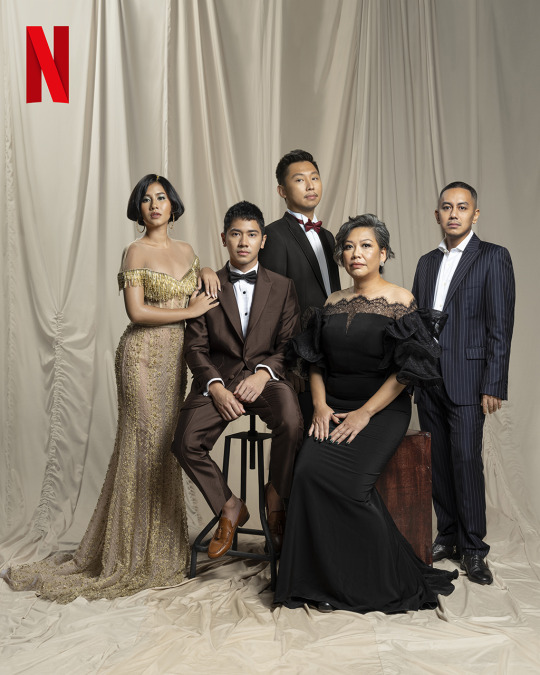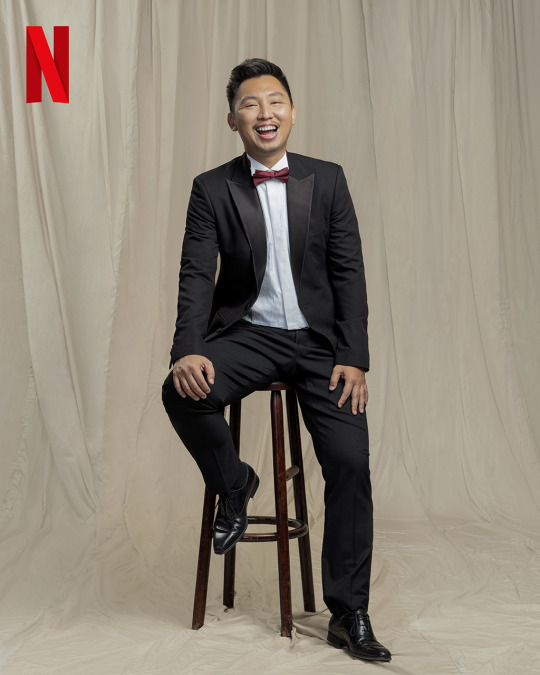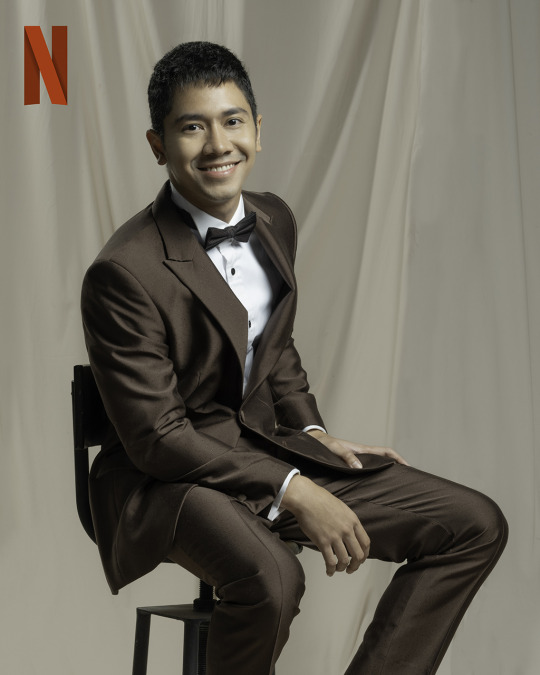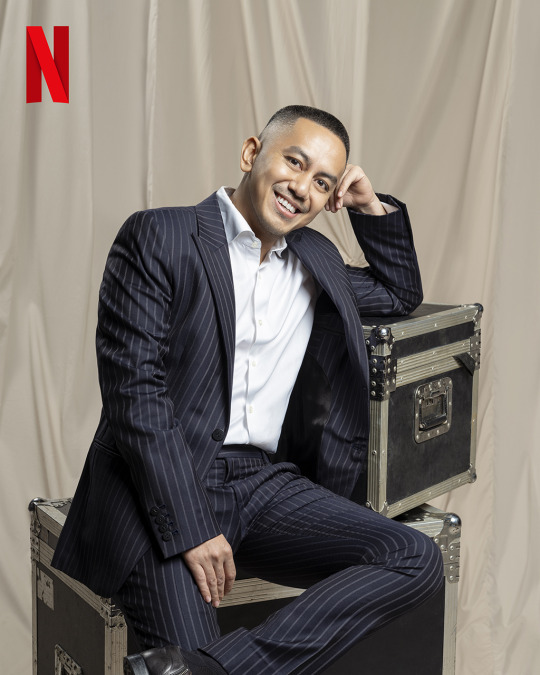#muhammad zaidy
Note
what's the difference between the houtshis and hezbollah?
To keep it relatively short and simplistic
The Houthis or AnsarAllah are a Fiver Shi'i resistance group in Yemen. They believe that the Fifth Imam was Zaid ibn Ali (a), the son of Imam Sajjad (a). Some are concerned about reviving the Zaidi imamate while some wish to implement an Islamic democracy. They primarily serve as a resistance group against the Wahhabi-supported Saleh/Hadi government, the Gulf states and Pro-western elements.
Hizbollah are a Twelver Shi'i resistance group mostly based in Southern Lebanon. Twelver Shi'as believe in the twelve divinely appointed Imams with the final one being Imam Mahdi (atfs). Unlike the Fivers, the Twelvers believe Zaid's (a) brother, Muhammad ibn Ali (a) was the fifth Imam. Created following the Israeli invasion of Lebanon in 82, they've functioned primarily as a resistance group against Israel, Salafist elements and US-backed interests ever since.
188 notes
·
View notes
Text
Schools of Islam: A Journey Through Islamic Thought and Practice

Islam, one of the world's major religions, is not a monolithic entity but rather a rich tapestry of beliefs and practices. This diversity is encapsulated in the various schools of thought within Islam, each with its unique interpretations and traditions. Understanding these schools is crucial for appreciating the multifaceted nature of the Islamic faith. This blog will explore the primary schools of Islam, their origins, key beliefs, and practices.
1. Introduction to Islamic Schools of Thought
Islam, like any major religion, encompasses a wide range of interpretations and practices. The diversity within Islam is organized into various schools of thought, each offering distinct perspectives on theological, legal, and spiritual matters. These schools have evolved over centuries, shaped by historical, cultural, and intellectual contexts.
2. Sunni Islam: The Majority Tradition
Origins and Historical Development
Sunni Islam is the largest branch of Islam, representing approximately 85-90% of Muslims worldwide. Its name derives from the word "Sunnah," which refers to the practices and traditions of the Prophet Muhammad. Sunni Islam emphasizes the consensus (ijma) of the Muslim community and the importance of the hadiths (recorded sayings and actions of the Prophet).
Key Beliefs and Practices
Sunni Muslims adhere to the Five Pillars of Islam: Shahada (faith), Salah (prayer), Zakat (charity), Sawm (fasting during Ramadan), and Hajj (pilgrimage to Mecca). Sunni jurisprudence is based on four major schools of thought: Hanafi, Maliki, Shafi'i, and Hanbali, each with its interpretations of Islamic law (Sharia).
3. Shia Islam: The Path of the Imams
Origins and Historical Development
Shia Islam constitutes about 10-15% of the Muslim population. It originated from a dispute over the rightful succession of leadership after the death of Prophet Muhammad. Shia Muslims believe that Ali, the Prophet's cousin and son-in-law, and his descendants, known as Imams, are the rightful leaders.
Key Beliefs and Practices
Shia Islam places significant emphasis on the role of the Imams, who are seen as spiritual and temporal leaders endowed with divine knowledge. Key Shia practices include commemorating the martyrdom of Imam Hussein during Ashura and the concept of Taqiyya (concealment) to protect oneself from persecution. The major Shia branches are Twelvers, Ismailis, and Zaidis, each with its theological nuances.
4. Sufism: The Mystical Path
Origins and Historical Development
Sufism, or Tasawwuf, represents the mystical dimension of Islam. It seeks a direct and personal experience of God through inner purification and spiritual practices. Sufism emerged in the early centuries of Islam as a reaction against materialism and formalism.
Key Beliefs and Practices
Sufis emphasize the importance of the heart and inner states, striving for Ihsan (excellence) in worship. Practices include Dhikr (remembrance of God), poetry, music, and dance (such as the Whirling Dervishes). Notable Sufi orders include the Qadiriyya, Naqshbandiyya, and Chishtiyya, each with its spiritual lineage and methods.
5. The Ibadi School: A Unique Perspective
Origins and Historical Development
The Ibadi school is one of the oldest Islamic sects, originating in the early Islamic period. It is distinct from both Sunni and Shia Islam and has a significant presence in Oman, parts of North Africa, and Zanzibar.
Key Beliefs and Practices
Ibadis emphasize a puritanical approach to Islam, advocating simplicity, piety, and a strong community ethic. They reject the concept of an infallible Imam and stress the importance of consensus among believers. Ibadi jurisprudence has its unique interpretations of Sharia, particularly regarding social and political issues.
6. The Ahmadiyya Community: A Modern Interpretation
Origins and Historical Development
The Ahmadiyya movement was founded in the late 19th century by Mirza Ghulam Ahmad in India. Ahmad claimed to be the Mahdi and Messiah, roles traditionally reserved for the end times in Islamic eschatology. This claim led to significant controversy and opposition from mainstream Muslim groups.
Key Beliefs and Practices
Ahmadis believe in the continued spiritual guidance through their Caliphate and emphasize the peaceful propagation of Islam. They uphold the Five Pillars and Six Articles of Faith but have unique interpretations, particularly regarding the finality of prophethood. The community is known for its strong emphasis on education, humanitarian work, and interfaith dialogue.
7. The Salafi Movement: Returning to the Roots
Origins and Historical Development
The Salafi movement seeks to return to what its adherents consider the pure, unadulterated practice of Islam as observed by the Prophet Muhammad and the first three generations of Muslims (Salaf). It emerged in the late 19th and early 20th centuries as a response to perceived moral decay and foreign influences.
Key Beliefs and Practices
Salafis advocate a strict adherence to the Quran and Sunnah, rejecting innovations (bid'ah) in religious practices. They emphasize monotheism (Tawhid) and are often characterized by a literalist approach to Islamic texts. The movement has various strands, including quietist, activist, and jihadist groups, each with its strategies for achieving their vision of Islamic purity.
8. The Modernist and Reformist Movements: Adapting to Contemporary Challenges
Origins and Historical Development
In response to colonialism, modernization, and globalization, various modernist and reformist movements have emerged within Islam. These movements seek to reconcile Islamic principles with contemporary values and challenges.
Key Beliefs and Practices
Modernists advocate for ijtihad (independent reasoning) and reinterpretation of Islamic texts to address modern issues such as gender equality, human rights, and democracy. Reformists often emphasize the importance of education, scientific progress, and interfaith dialogue. Notable figures include Muhammad Abduh, Rashid Rida, and Fazlur Rahman, whose works continue to influence contemporary Islamic thought.
Conclusion: Embracing Diversity within Unity
The diversity of schools within Islam reflects the rich and dynamic nature of the faith. While these schools differ in their interpretations and practices, they all share a common foundation in the Quran and the teachings of the Prophet Muhammad. Understanding these differences enhances our appreciation of Islam's complexity and the ways in which it continues to evolve in response to changing historical and cultural contexts.
By embracing this diversity, Muslims around the world can find ways to unite in their shared beliefs and values while respecting the varied expressions of their faith. For non-Muslims, exploring the different schools of Islam offers a deeper insight into a religion that plays a significant role in global history and contemporary society.
0 notes
Text


#hadees : الحديث النبوى ﷺ
Riwayat Sayyad Zaidi Hussaini
Ibn Khawja Garib Nawaz
.
.
#allah #allahuakbar #muslim #muhammad #dua #jannah #sunnah #taqwa #surah #ayah #inshallah #instamuslim #mashallah #mashaallah #subhanallah #alhamdulilah #alhamdulilah #islamic
@younus_algohar @alratv
Watch #ALRATV Live on youtube at 10 PM UK time (3 AM PKT and 3:30 AM IST).
For Zikar-e-Qalb (Activation of the Spiritual Heart) contact Shaykh Amjad Gohar on this number +447401855568
How to Send Your Questions:
1. Message us on Facebook/alratv
2. Text or call our WhatsApp number: +44 7472 540642
0 notes
Text
Public Defense and Viva Voce Examination of Syed Muhammad Raza Zaidi
http://dlvr.it/SpL69N
0 notes
Photo






WNI Title Glam: Dear David
Project Announcement Photoshoot
(L to R) Shenina Cinnamon as Laras, Emir Mahira as David, Lucky Kuswandi as Director, Meiske Taurisia as Producer, Muhammad Zaidy as Showrunner.
Cr. Jozz Felix/Netflix © 2022
#netflix#netflix indonesia#waktu netflix indonesia#indonesia#dear david#shenina cinnamon#emir mahira#lucky kuswandi#meiske taurisia#muhammad zaidy#jozz felix#angelia leanartha#photoshoot
7 notes
·
View notes
Text
Urdu Poetry | Best Urdu Poetry | Famous Urdu Poets
URDU POETRY
Urdu poetry reached is peak in the 19th century. The most well-developed vessel of poetry has turned out to be the ghazal, which has by far exceeded all other forms of Urdu poetry by its quality and quantity within the cosmos of Urdu.Best Urdu Poetry
Poets
13th-century:
Amir Khusro
16th century:
Muhammad Quli Qutub Shah – wrote poetry primarily in Persian, but also in Hindavi
17th century:
Wali Mohammed Wali Deccani
Mirza Mazhar Jan-e-Janaan
18th century:
Faaiz Dehlvi
Khan Arzu
Mubarak Abru
Mir Taqi Mir
Nazeer Akbarabadi
Khwaja Mir Dard
19th century:
Mirza Salaamat Ali Dabeer
Mir Babar Ali Anis
Bahadur Shah II
Mirza Sauda
Mirza Ghalib
Mohammad Ibrahim Zauq
Dagh Dehlvi
20th century:
Altaf Hussain Maulana Hali
Akbar Allahabadi
Muhammad Iqbal
Hasrat Mohani
Amjad Hyderabadi
Fani Badayuni
Yagana Changezi
Akhtar Shirani
Miraji
Seemab Akbarabadi
Aarzoo Lakhnawi
Jigar Moradabadi
Firaq Gorakhpuri
Hafeez Jalandhari
Josh Malihabadi
Ahsan Danish
Saghar Nizami
Mehr Lal Soni Zia Fatehabadi
Noon Meem Rashid
Majeed Amjad
Faiz Ahmad Faiz
Jan Nisar Akhtar
Nasir Kazmi
Sahir Ludhianvi
Jagan Nath Azad
Majrooh Sultanpuri
Asrarul Haq Majaz
Syed Mahmood Khundmiri
Ibn-e-Insha
Munir Niyazi
Ada Jaffery
Zafar Iqbal
21st century:
Jaun Elia
Ahmad Faraz
Raees Warsi
Akhlaque Bandvi
Rahat Indori
Waseem Barelvi
Ishrat Afreen
Manzar Bhopali
Adeel Zaidi
Famouse Urdu Poetry
11 notes
·
View notes
Note
I've noticed that hezbollah and the houthis are shi'as but don't seem to be like each other do you know why?
Hezbollah is a Twelver or Imami Shi'a militia/resistance group mainly operating in Lebanon. Founded on the basis of the Guardian of the Jurists (wilayat al-faqih) and on the teachings of Muhammad Baqir al-Sadr, a scholar from Iraq.
Ansar Allah is a Fiver or Zaidi Shi'a militia/resistance group in Yemen. They're also referred to as Houthis, named after Hussain al-Houthi, a former member of the parliament in Yemen, until he revolted and was subsequently assassinated.
Shi'a Muslims in general believe that Ali (a) should have succeeded the Prophet Muhammed (sawas) following his death and hold that only the family of prophet in a successive line can ascend the Imamate of the Muslims. While all Shi'as believe that Ali, Hassan, Hussain and Ali II (as) were the first four Imams of Shi'a Islam, the split occurred with the fifth Imam. There have been earlier splits, however, those branches have long since died out.
Twelvers: Twelvers believe that that there are twelve infallible Imams who have the knowledge of the unseen and the seen, therefore having the absolute authority over Qur'anic exegesis in its esoteric and exoteric forms. They believe that Imam Muhammed Baqir (a) was the fifth Imam following his father, Ali II (a). Shi'a Muslims believe that the position of the Imamate is divinely ordained. The name Twelver refers to the fact that there were Twelve divinely ordained Imams, with the final being Imam Mahdi (atfs), who is still considered to be alive albeit in occultation (Ghaibah).
Fivers: Fivers do not believe in the infallibility of the Imams and hold that anyone of the Prophetic lineage through Hasan (a) and Hussain (a) can be the Imam of the Muslims. They believe that rather than Muhammed Baqir (a) ascending the Imamate, his brother, Zaid ibn Ali (a), was considered fit for the Imamate due to the fact that he revolted against the Umayyads, hence why they are referred to as Fiver Shi'as. Unlike the Twelvers, the imamate remained until 1962, and subsequently died out.
69 notes
·
View notes
Text
The bedouin who live on the Turkish frontiers pretend to be Muslims for political reasons but they are so negligent of religion and their piety is so weak that they are usually considered infidels who have neither a law nor a prophet. They readily admit that Muhammad’s religion was not created for them. They add, ‘How can we perform ablutions without water? How can we give alms, being not rich? Why should we fast in Ramadhan after fasting all the year round? Why should we go to Mecca if God is everywhere?’
Thus there was a wide gamut of shades of Islam in Arabia at the time that Wahhabism was emerging - from Hanbalis [hardliner sunni] through the orthodox Sunnis of otherschools to Zaidis, Shia and Ibadis. The cult of saints was widespread. Pre-Muslim religious beliefs and cults - sorcery, idol worship, sun worship, animism, fetishism and the cult of ancestors - coexisted and became interwoven with Islam. It was within this spiritual milieu that Ibn Abd al-Wahhab lived, accepting or rejecting certain elements of that heritage as his views were formed.
Alexei Vassiliev - The History of Saudi Arabia
1 note
·
View note
Text
Chai Shayari
TO READ MORE POETRY VISIT HERE: Chai Shayari
Nowadays, the Internet is filled with Shayari websites. People are searching for Shayaris of their own choice to share on social media. But finding a new and best Shayari is very difficult. Don’t worry Shayari Lovers, Shayarihub has a heart-touching collection of Best Shayari in Hindi | SMS Shayari | Shayari Quotes | Best Shayari For Whatsapp.
Ghazal is a brief love song, but it can also be a poem about anything. It should strictly be speaking, have the same rhyme throughout. The majority of Urdu ghazals are fake and conventional.
Qasida is a type of ode that is generally panegyric on a benefactor but can also be satire or poetry about a significant event. It is usually longer than a ghazal, although it follows the same rhyming scheme.
Marsiya (or elegy) is almost always about Hasan and Husain’s deaths and their families, although it can also be about the deaths of relatives and friends. It’s commonly written in six-line stanzas and rhymes aaaabb. One of the most important events in Muslim life is the reading of these elegies during the first 10 days of Muharram. An epic is always a fully-fledged marsiya. Mir Nawab Ali ‘Munis,’ Dulaha Sahab ‘Uruj,’ Mustafa Meerza urf Piyare Sahab ‘Rasheed,’ Syed Muhammad Mirza Uns, Ali Nawab ‘Qadeem,’ Syed Sajjad Hussain Shadeed Lucknavi, Allama, Dr.Syed Ali Imam Zaidi, Gauher Luckhnavi are among the prominent maria writers who.
Masnavi is a poetic romance in the majority of cases. It can be thousands of lines long, although it is usually considerably less. Only a few masnavis deal with everyday domestic and other issues. Some of these were written by Mir and Sauda. The meter is bacchic tetrameter with iambus for the last foot, and they are always in heroic couplets. Dr. Syed Ali Imam Zaidi Gauher Lucknavi wrote the Religious Masnavi History of Islam (Tarikh-e-Islam Az Quran).
Tazkira is a biographical anthology that almost always consists solely of poetry. This is frequently only a list of names with a line or two of biographical information about each poet, followed by a sample of his work. On the other hand, it could be a collection of illustrative fragments from the history of Urdu poetry. The best tazkiras include biographical facts but fall short on literary criticism, leaving us with no sense of style or poetical strength, let alone poem content. Even massive anthologies do not review an author’s work in a systematic manner. The names are in alphabetical order, for the most part, however one or two prefer historical order. The majority just quote lyrics and quotations, which are frequently chosen at random.
2 notes
·
View notes
Text
1 note
·
View note
Photo

WNI Family Photo
Project Announcement Photoshoot
(L to R) Timo Tjahjanto, Muhammad Zaidy, Ernest Prakasa, Rachel Amanda, Angga Dwimas Sasongko, Yunita Siregar, Lucky Kuswandi, Jourdy Pranata, Lutesha, Ifa Isfansyah, Kamila Andini, Emir Mahira, Arya Saloka, Dian Sastrowardoyo, Putri Marino, Kristo Immanuel, Shenina Cinnamon, Raditya Dika, Ario Bayu, Shanty Harmayn, Joko Anwar, Salman Aristo, Chicco Kurniawan, Agatha Pricilla, Arie Kriting, Meiske Taurisia.
Cr. Jozz Felix/Netflix © 2022
#netflix#waktu netflix indonesia#indonesia#timo tjahjanto#muhammad zaidy#ernest prakasa#rachel amanda#angga dwimas sasongko#yunita siregar#lucky kuswandi#jourdy pranata#lutesha#ifa isfansyah#kamila andini#emir mahira#arya saloka#dian sastrowardoyo#putri marino#kristo immanuel#shenina cinnamon#raditya dika#ario bayu#shanty harmayn#joko anwar#salman aristo#chicco kurniawan#agatha pricilla#arie kriting#meiske taurisia#angelia leanartha
3 notes
·
View notes
Text
Marsiya | Best Urdu Marsiya | Hazrat Imam Hasan | Adeel Zaidi
MARSIYA
Marsiya is an elegy typically composed about the death of Hasan, Husain, or their relatives. Each stanza has six lines, with the rhyme scheme aaaabb.[2] The famous marsia writers who inherited the tradition of Mir Anis among his successive generations are Mir Nawab Ali ‘Munis’, Dulaha Sahab ‘Uruj’, Syed Mohammed Mohsin (Jaunpuri), Mustafa Meerza urf Piyare Sahab ‘Rasheed’, Syed Muhammad Mirza Uns, Ali Nawab ‘Qadeem’, Syed Sajjad Hussain “Shadeed” Lucknavi, Allama, Dr.Syed Ali Imam Zaidi, “Gauher” Luckhnavi the great grandson of Mir Babber Ali Anis.Best Urdu Marsiya
1 note
·
View note
Note
wait theres more subcategories of Shi'a Islam? not saying this to be judgmental btw, i know most religions have plenty of internal subdivision, i just didn't know (and to be frank im not entirely clear on what the Shi'a and Sunni branches originally separated, but i think it's to do with the succession of Muhammad?)
Shi'as all agree with the political position of Ali ibn Abu Talib (a) succeeding the Prophet Muhammed (sawas). The difference is derived from the subsequent Imams that the Shi'as did not agree upon.
Three of the biggest subsects of Shi'a Muslims today are the Twelvers (Imamis), Seveners (Ismailis) and Fivers (Zaidis). Although they differ theologically, there hasn't been a sectarian dispute between all three. The Imamis and Ismailiyyas believe that the Imams are divinely appointed, that they are infallible and that it can only be passed from their father to the son, while the Zaidiyyas deny infallibility and believe they can be chosen as long as it's anyone that descendends from Lady Fatimah (a).
The Twelvers believe that there are twelve Imams and that the final Imam is Imam Mahdi (atfs), who is currently in occultation. They make up the majority of Shi'as today and is the predominate religious belief in Iran, Bahrain, Iraq and exists in parts of South Asia and Lebanon.
Ismailiyyas disagreed with the Twelvers regarding the Seventh Imam. Although we agree with all the Imams up to the sixth Imam, Imam Ja'far as-Sadiq (a), there was a dispute regarding who would succeed him. Musa (a) or Ismail (a), the sons of Ja'far (a). Those who pledged allegience to Musa al Kadhim (a) would later become known as the Twelvers, while those who pledged allegience to Ismail ibn Ja'far (a) became known as the Ismailiyyas. Ismailiyyas are separated into sub-subsects, because of their historical disputes. We got Nizaris and Musta'alis. These two sub-sub branches came into existence over a dispute regarding the succession of who'd become the next caliph after their deceased father. Hassan i Sabbah pledged allegience to Nizar and created the Order of the Assassins and a Nizari state at the fortress of Alamut, while the rest retained their position in Fatimid Egypt and proclaimed their allegience to Musta'al. The Nizaris follow a man by the name of Aga Khan IV, who they believe is the Imam of our time. The Musta'alis are a bit complicated to explain, cause they're a very isolated group of Muslims.
Zaidiyyas agree with the Imamis and Ismailiyyas up to the fourth Imam, Imam Ali ibn Hussain (a). The Zaidis held that his son Zayd ibn Ali (a) should have become the Imam rather than his brother, Imam Muhammed ibn Ali (a), because the former revolted against the tyranical caliphate, while the latter did not. thus Zaid (a) was not only a member of the Prophet's family, but he was also politically competent. The rest of the Shi'as subscribed to the idea that Muhammed al-Baqir (a) was the fifth Imam in line after his father. Zaidis make up a significant population in Yemen. Houthis are a family of people who subscribe to the Zaidi belief.
69 notes
·
View notes
Photo

KUANTAN, 23 Julai (Bernama) — Polis menemukan satu rangka manusia dalam sebuah kereta yang ditarik keluar dari Sungai Api-Api di Nenasi, Pekan, dipercayai mayat seorang lelaki yang dilaporkan hilang sejak hampir 10 bulan lepas. Ketua Polis Daerah Pekan Supt Mohd Zaidi Mat Zin berkata mayat ditemukan dalam kenderaan Nissan Grand Livina yang dijumpai seorang lelaki warga emas semasa dia mengalihkan besi dari jalan ke tepi sungai berkenaan pada 11.40 pagi tadi. “Kenderaan itu mempunyai kerosakan pada bahagian hadapan, kiri dan kanan selain pemeriksaan di dalamnya menemukan mayat yang diselaputi lumpur serta pas pekerja yang didaftarkan atas nama Muhammad Iman Aqmar. Siasatan awal terhadap nombor pendaftaran kenderaan mendapati ia dikaitkan dengan laporan kehilangan yang dibuat di Pasir Gudang, Johor oleh ahli keluarga lelaki bernama Muhammad Iman Aqmar Dzulkarnain,” katanya menerusi kenyataan di sini hari ini. https://instagr.am/p/CgYNgV7JWIp/
0 notes
Text
Dhalti Shaam Ka Sooraj - PTV Classics Long Play
Dhalti Shaam Ka Sooraj – PTV Classics Long Play
https://www.dailymotion.com/video/x89nnvo
Dhalti Shaam Ka Sooraj – PTV Classics Long Play
Written by: Tahir NaqviProduced by: Shehnsha ZaidiDirected by: Naveed Israr
Starring: Muhammad Qavi Khan, Zaheen Tahira, Hafiz Fatima, Shahinshah Zaidi, Anees Raja, Aslam Sheikh, Shazia Kanwal, Shaham, Maroof, Sohail, Shad Rizvi, Sameera Hasan, Tanveer Jamal, Farooq Memon,

View On WordPress
0 notes
Text
CM CHAIRS MEETING TO TAKE STOCK OF HIGHER EDUCATION SECTOR
With the compliments of, The Directorate General Public Relations,
Government of the Punjab, Lahore Ph No99201390.
No.2423 /QU/Zahid
HANDOUT (A)
LAHORE, Dec. 30:
Chief Minister Punjab Sardar Usman Buzdar chaired a meeting at his office about the higher education department in which progress on the establishment of universities was reviewed. The CM directed to speedily resolve issues relating to new universities' establishment as the facility would, particularly, benefit female students of remote areas.
The CM gave in-principle approval to transfer state lands for the establishment of new colleges in different areas as the government was striving to extend facilities of higher education to the youth at their doorstep. The government was committed to transforming Punjab into a hub of higher education and improving the international ranking of Punjab based universities is sanguine; he added and directed to take steps to establish colleges in remote areas. The Lahore Technopolis would prove a game-changer initiative, he said. Punjab was being transformed through the promotion of quality education; he maintained and vowed to ensure ease in education promotion for the private sector.
Provincial ministers Raja Yasir Humayun, Hashim Jawan Bakht, SMBR, secretary higher education and others attended the meeting.
++++
No.2424/QU/Zahid
HANDOUT (A)
CM CONDOLES DEATH OF VETERAN JOURNALIST TANVIR ZAIDI
LAHORE, Dec. 30:
Chief Minister Punjab Sardar Usman Buzdar has expressed a deep sense of sorrow over the death of veteran journalist Tanvir Zaidi, father of DGPR officer Haseeb Zaidi.
In a statement, the CM extended sympathies to the bereaved family and prayed to Almighty Allah to rest the departed soul in eternal peace.
+++++
No. 2425/QU/Zahid
HANDOUT (A)
CM APPROVES RS7.3 MILLION FOR TREATMENT OF DESERVING PATIENTS
LAHORE, Dec. 30:
Chief Minister Punjab Sardar Usman Buzdar has approved over Rs7.3 million for the treatment of nine deserving patients suffering from different diseases.
Rs3 million have been issued to Saher Fatima of Lahore for her bone marrow treatment, Rs3.6 lakh for liver patient Aftab Hussain of Sheikhupura, Rs0.5 million for the treatment of Aas Muhammad of Sheikhupura, Rs7.5 lakh for Abdul Samad Khan of Kamoki tehsil of Gujranwala, Rs2.40 lakh for kidney patient Muhammad Afzal Tarar of Wazirabad, seven lakh, 36 thousand 500 rupees for neuro patient Uzma Iqbal of Khushab, 1042500 rupees for Rubina Tabbasum of Hafizabad, Rs2 lakh for kidney patient Manzoor Ahmed and 5.31 lakh rupees have been approved for liver patient Zareena Kauser of Kasur who is under treatment at PKLI.
In a statement, the CM vowed to continue serving the ailing humanity as helping the needy was a noble cause and he devoted the coveted post to serve the people in need.
++++
No.2426 /QU/Zahid
HANDOUT (A)
CM CONDEMNS STATE-SPONSORED INDIAN ATROCITIES IN INDIAN OCCUPIED KASHMIR
LAHORE, Dec. 30:
Chief Minister Punjab Sardar Usman Buzdar has strongly condemned India atrocities against oppressed Kashmiris in Indian Occupied Kashmir and regretted that India has crossed all limits to unleash hell in Occupied Kashmir.
In a statement, the CM regretted that India is constantly engaged in the extrajudicial killings of hapless Kashmiris for a long period adding that oppressed Kashmiri youth is killed mercilessly every day. The silence of the international community over the Indian spate of terrorism is unjustified and the world should awake from slumber to take notice of the cruelties meted out against Kashmiris in IOK, he said.
The CM asserted that the nefarious Indian designs aimed at changing the obvious majority of Kashmiris into a minority through genocide would be foiled and asked the UN to intervene for playing its role. The state-sponsored brutalities in IOK would come to an end and the freedom of Kashmiris is not far; he added and repeated that Pakistan firmly stands with Kashmiris as both are conjoined twins. India cannot continue its illegal occupation through torture and barbarity as Pakistan is firmly standing with the oppressed Kashmiris; he said and urged India to understand that Kashmiris' right to self-determination could not be suppressed through barbarity and torture.
** **
No.2427 /QU/Mujahid
HANDOUT (A)
CM CONDOLES WITH MAHINDER PALL SINGH OVER HIS FATHER’S DEATH
LAHORE, Dec. 30:
Chief Minister Punjab Sardar Usman Buzdar has condoled the death of Giani Sardar Rovail Singh Khalsa, father of provincial parliamentary secretary for human rights and minorities affairs Mahinder Pall Singh. In a statement, the CM extended sympathies to Mahinder Pall Singh adding that he is saddened over the passing away of his father.
** **
0 notes